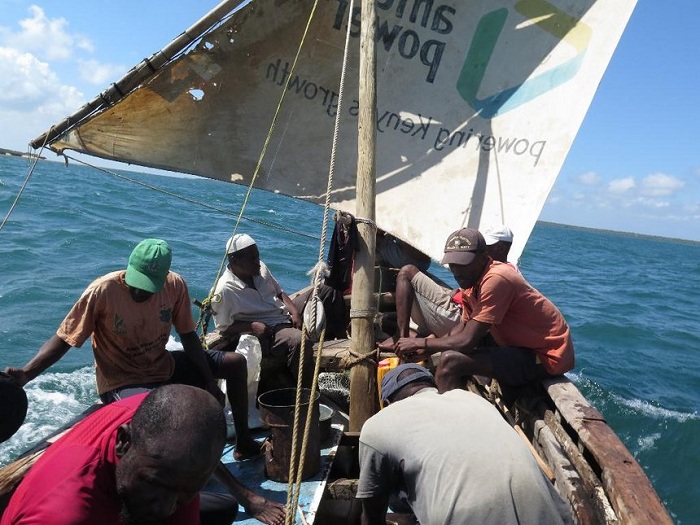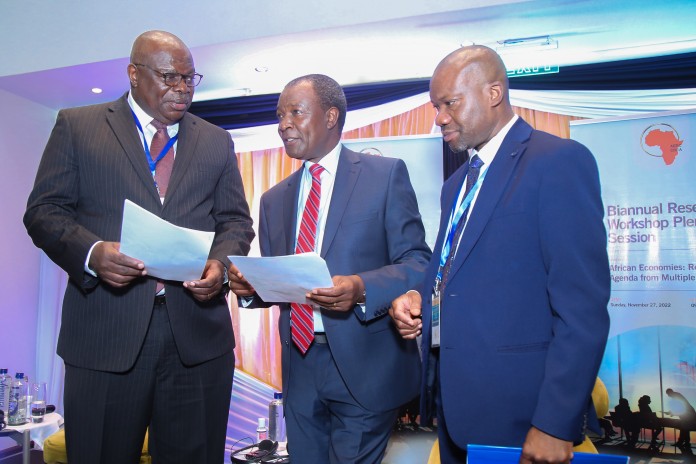African economies have been urged to include food security,climate change mitigation and adaption framework in the economic agenda.
This was said during the African Economies Research Conference (AERC) 57th Biannual Research Workshop.
Speaking at the event, CS of the National Treasury and Economics Planning Prof. Njuguna Ndung’u, reiterated the need for governments across the continent to focus on protecting private investments, recovering the health in infrastructure, education and nutrition as part of recovery from the multiple shocks that.
“We can accelerate African economic recovery journey through collaboration and cooperation towards research that focuses on how to protect private investors, how to reinforce education, recover the health infrastructure, food security, and food markets, and how to develop, and protect markets to help our economies to recover from the current shocks,” he said.
He also encouraged African economies to develop, regulate and even protect the markets as part of economic recovery. He further challenged economic researchers to focus on domestic resource mobilisation and digital resolution in the African set-up.
In the last two decades, African economies have weathered multiple negative global shocks and remained resilient even when these shocks hit hard the core of key macroeconomic indicators. However, the Covid-19 pandemic, coupled with the war in Ukraine and climate-related shocks have caused permanent damage that could take years to mend.
“We saw the covid-19 pandemic that hit the entire world, but Africa was affected differently from the rest of the world, and today the most relevant issue is the war in Ukraine that is affecting the whole world but quite different on how Africa is being tested and we need to figure out solutions in our own way on how to tackle these many shocks,” said Professor Ernest Aryeetey, Chair of the AERC Board.
On his part, Acting AERC Executive Director and Director of Training Professor Théophile T. Azomahou noted that the economic fundamentals of most African economies have not changed much in the last three decades.
He, said, that the recovery from the shock that is taking shape runs the risk of being uneven, widening the differences within Africa itself and between Africa, and the rest of the world.
“We observe an overstretched resource envelope to mitigate COVID-19, low productivity in agriculture arising from climate change, low value addition from manufacturing sectors and persistent trade barriers in the region that globally calls for new approaches in handling structural shocks. The outcome is declining economic activity, rising poverty and inequality, in fact, the Covid-19 has wiped the efforts in the last two decades or so on growth, fighting poverty and inequality. With low adaptation and implementation of dynamic structural transformation strategies emanating from lower capital accumulation, some of the development initiatives that could have spurred Africa out of poverty trap have been elusive,” Professor Théophile T. Azomahou said.
The conference brought together high-level policymakers, researchers, media, economists, academics, and non-state actors in a lively mix of speeches, presentations, plenary and concurrent sessions.
Story courtesy













